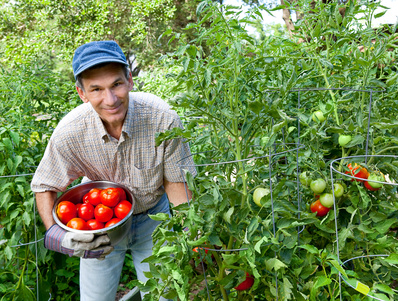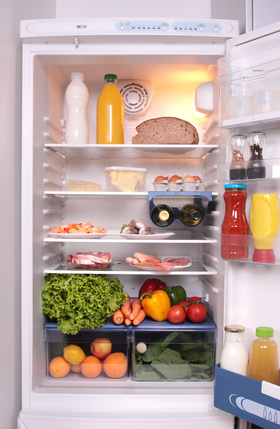Categories
Calendars
Guides
Reviews
Archive
Gallery
Articles
Ask Our Gardening Expert
Plants on Holiday
As our gardens come to the time when they are the most productive and look their best, we leave them for two weeks or so to their own devices. Tomato vines are laden with fruit, lettuces are at their tender best and peas are sweet pods of green sunshine. Our house plants, starved of light during the winter never look so good. When the two weeks are over, we often return to disappointment. Some of our houseplants may have died through lack of water and the garden that was once picture perfect, is such a waste of weeds and inedible vegetables that we wonder if it is worth carrying on until the end of the growing season. A few careful preparations beforehand will save you from disappointment and allow you to take up where you last left off. We would hardly leave a pet home alone for two weeks and expect a wagging tail, so why do it to our plants? So, a few tips on what to do without taking on a house sitter.

First, remove as much of the crop as you can and eat it. Home grown produce tastes best when picked and eaten on the same day. What you can’t eat, store. Tomatoes and bush fruit freeze well, peas and beans can be blanched before freezing, potatoes stay in the ground. Time planting so that little is coming on in those key weeks of absence. Lettuce can be pulled up, the roots wrapped wet newspaper and the whole plant stored in the fridge. Anything that cannot be eaten or stored can be given away. Who does not like a present of fresh from the garden fruit and vegetables? Plants will be fooled into behaving as though they have not reproduced and removing the crop will ensure you will have plenty when you return.

Life resumes when you get back. Watering systems are easy to install and timers are affordable. Plant seeds before you leave and put straw around seedlings to conserve moisture. Plastic drink bottles can be made into rainwater collectors if their bases are removed, the lid punctured and their necks stuck into the soil close to a delicate plant. Fill them up before you go so that your helpful neighbour will have to visit less often.
If you do not want to feed the bird life when you are away, cover susceptible plants with netting. Stake all wind prone vegetables and ornamentals remembering that a ‘pyramid’ of three or four stakes supports itself far better than a single stake. To deter other lower forms of life, tidy before you go. Mow the lawns, trim the hedges and weed, nothing says ‘not at home’ to a burglar than a recently neglected garden.
Now for the houseplants. It’s a good idea to reduce plants’ needs as much as possible. Watering is the biggest problem and pots make plants dependent on regular watering. Reduce their need for water by controlling their life processes. Take them to the bathroom and bring down the blind to let in just a little light. Bathrooms are often on the coolest side of the house and the combination of reduced light and lower temperatures will slow down photosynthesis, growth and therefore, their need for water. To be on the safe side, you can put them in the bath with an inch or so of water but do not leave the tap dripping. A bath can fill in days from a dripping tap and it is better to imagine the consequences of your return. If you must, you can water a plant with wicks running from a bucket to the plant pots.
Have a happy holiday in the knowledge that will not be nasty surprises when you return.